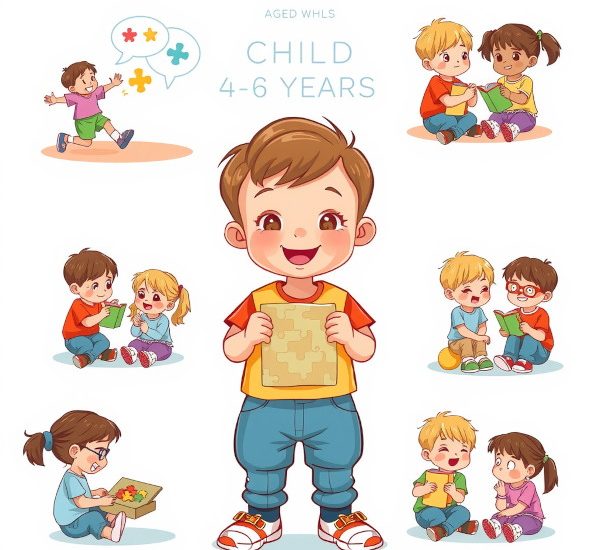How many times have you heard the word “bravo” addressed to a child? The child goes down the slide, bravo! The child eats a banana, bravo! The child colors, bravo! The child makes a cute face, bravo! And the examples can go on. But what is wrong with always praising children or saying “bravo” at every step?
I have observed this behavior in any parent/grandmother/nanny. You can hear them anywhere children are around, and many times I have witnessed some absolutely useless and banal examples of “bravo,” “wow,” “how did you do it?” and useless enthusiasm towards children. These are just empty praises from parents. The more we think we are vociferous or enthusiastic in expressing these exclamations: “extraordinary,” “bravo,” “wonderful,” “I am so proud of you,” “incredible,” we believe that we are doing a great favor to children, but it only increases the risk that these praises will become empty without any essence.
It is important to ensure that the praises we offer to children are well-founded and specific to their performance or achievements. Additionally, constantly offering praise without foundation does not contribute to the children’s self-esteem but can lead to dependence on praises. Therefore, it is essential to focus on specific and constructive feedback that will help children understand what they did well and what they can improve in the future. In this way, they will develop a realistic self-esteem and a healthy self-image based on their real accomplishments, not empty praises or dependence on confirmation from others.
If there is not always an adult to confirm what they have heard from their parents, the child will not be satisfied. Additionally, empty praise does not contribute to increasing self-esteem but rather to developing an exaggerated self-image. The motivation generated by empty praise is of very short duration, which can lead to dependence on confirmation from adults. Thus, the adult will do anything to receive the approval of others, even if this behavior does not correspond to their own ideas and values.
Everyone feels good when receiving praise, and children in particular are very receptive to it. If the child does not receive these praises, it can have an impact on their self-image, making them feel incapable or worthless.
Is there anyone here who has never been through this in childhood or even as an adult? I am the first to raise my hand because this is the biggest burden I have carried for years, which has prevented me from progressing in life, always waiting to receive confirmation from others through empty praise. When I did not receive such praise, I was almost in a state of depression, and my self-esteem decreased.
This does not mean that we should not show appreciation for our children or that we should be rigid about their progress. We should encourage and support our children’s progress, but we should do it in a specific and constructive way so that they understand why they are appreciated and continue to improve their skills and performance. In this way, our children will develop a strong and autonomous self-esteem based on their own achievements, not on empty praises or dependence on confirmation from others.
Although it is essential to show appreciation and express gratitude to our children, empty praises can have a counterproductive effect. They can lead to a dependence on praises, creating a constant need for approval from others to feel good. Additionally, such praises do not provide any useful information about what was done well and how performance can be improved in the future.
Although praise can be beneficial for children’s development, empty praises, meaning those without a real basis, can have a negative impact on their development.
Examples of empty praises:
- Bravo, you drew a picture! (Even if the drawing is not at all successful or does not resemble anything);
- Bravo, you are the smartest child in the class! (Without having a real basis, this praise can create unrealistic pressure and expectations for the child);
- Bravo, you sang very well! (Even if the child did not sing well or did not make an effort to improve their skills);
- Bravo, you are the most beautiful child in the world! (This praise focuses only on the child’s physical appearance and can create unrealistic pressure to always look perfect);
- Bravo, you defeated your opponent without giving them any chance! (This praise may suggest that defeating others is more important than fair play and respect for others);
- Bravo, you ate everything on your plate! (This praise can create unrealistic pressure to always eat everything and can lead to weight problems or eating disorders);
- Bravo, you managed to say the word “mom”! (This praise is exaggerated and can lead to underestimating the child’s abilities or unrealistic expectations);
- Bravo, you are the best player on the team! (This praise can create unrealistic pressure to always be the best and can undermine collaboration and solidarity within the team);
- Bravo, you managed to finish your homework for today! (This praise may suggest that fulfilling obligations is an exception, not a norm, and can discourage the desire to learn and fulfill daily tasks without constant praises);
- Bravo, you are the strongest child on the football team! (This praise may emphasize competition and suggest that the child’s value is determined by physical qualities or performance, not moral or intellectual qualities)
- Bravo, you are the best at math! (This praise can create unrealistic pressure to always be the best and can reduce the child’s confidence in their own abilities in other areas);
- Bravo, you are the most likable child in your group of friends! (This praise focuses only on social qualities and can suggest that the child’s value is determined by the degree of popularity or the pleasure of those around them).
These empty praises do not help build the child’s self-confidence but can create unrealistic expectations and unnecessary pressure. Instead, it is important to praise children for their efforts and real achievements. Thus, the child will learn to evaluate their own abilities and have real self-confidence.
Constructive feedback can also include suggestions or advice for improving the child’s performance. For example, if a child has written an essay for school, we can say “You wrote a very good essay, but you could try to work on structuring your ideas and including more examples to support your arguments.” These constructive suggestions give the child the opportunity to learn and improve their skills without making them feel defensive or judged.
Examples of constructive feedback:
- “I liked how you were able to work together with your classmates on the group project. You were very cooperative and made an important contribution to the team’s success.”
- “You have made significant progress on the piano, I noticed that you concentrated and worked hard to improve your performance. Congratulations!”
- “I appreciated the way you responded to the teacher’s questions in our history class. You made interesting connections between historical events and everyday life and showed a high level of critical thinking.”
- “You were brave to express your opinion in front of your classmates during our debate. I liked how you presented your arguments and supported your position.”
- “I noticed that you paid close attention to my instructions during our art class and were able to create a beautiful and creative painting. Bravo for your effort and the final result!”
- “I noticed that you spent a lot of time doing your homework, and now you have turned in all of it on time. It’s a very responsible approach and I’m glad you did it.”
- “You successfully completed a very complex project, and your work was remarkable. I like how you approached the problem and how you found solutions to solve it.”
- “Thank you for helping to prepare dinner today. It was a valuable contribution to the team effort, and I’m glad you demonstrated initiative in helping out.”
- “You were very brave to speak in front of the whole class during your presentation. I liked how you presented the information and how you answered the audience’s questions.”
- “I noticed that you were very kind and empathetic with your friend today when they needed someone to listen to them. It’s important to have this quality and to be there for others when they need you.”
Specific and constructive feedback can be a powerful tool to help children develop positively and reach their full potential. It is important to focus on this form of feedback and avoid empty and generalized praises, which can have a negative effect on their development and generate an excessive dependence on the approval of others.




